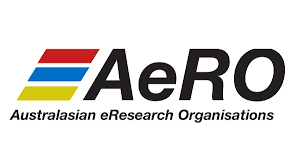Keywords: Research infrastructure or Science or collaboration or coordination or data visualisation
-

Heurist Network
### What is Heurist? Heurist is a comprehensive, flexible data management service built...
1 training material0 upcoming event (15 past event)Heurist Network https://heuristnetwork.org https://dresa.org.au/content_providers/heurist-network ### What is Heurist? Heurist is a comprehensive, flexible data management service built specifically for the Humanities, available both as a free service, or for download to a private server (open source). Its development has been driven and informed by dozens of Humanities research projects. Heurist is a human-centered interface to a MySQL (or other SQL server) database. It operates as a hybrid relational / graph database, hiding all the complexity of SQL, tables, relational joins, relational integrity etc. behind (fairly) simple choices. It’s available on a number of non-commercial web services (free to use) and on private web servers. You can also install it on your own server if you wish. ### What we offer We offer frequent training and collquia for our users, indeed for all Humanities researchers who use digital methods and require a database. Our users are a diverse community of researchers across Australasia, Europe, Asia, Africa and the Americas. We also offer one-on-one support and ad-hoc training for projects who use our technology, or individuals who need a hand gettings started with Humanities databasing. /system/content_providers/images/000/000/018/original/h6logo_intro.png?1653544233 -

Australasian eResearch Organisations (AeRO)
AeRO is the industry association focused on eResearch in Australasia AeRO plays a critical...
0 upcoming event (1 past event)Australasian eResearch Organisations (AeRO) https://aero.edu.au/ https://dresa.org.au/content_providers/australasian-eresearch-organisations-aero AeRO is the industry association focused on eResearch in Australasia AeRO plays a critical coordination role for our members, who are actively transforming research via Information Technology. Organisations join AeRO to advance their own capabilities and services, to collaborate and to network with peers. AeRO believes researchers and the sector significantly benefit from greater communication, coordination and sharing among the increasingly different and evolving service providers. /system/content_providers/images/000/000/010/original/download.png?1633604230 -

Atlas of Living Australia
The Atlas of Living Australia (ALA) is a collaborative, digital, open infrastructure that pulls...
0 upcoming event (1 past event)Atlas of Living Australia https://www.ala.org.au/ https://dresa.org.au/content_providers/atlas-of-living-australia The Atlas of Living Australia (ALA) is a collaborative, digital, open infrastructure that pulls together Australian biodiversity data from multiple sources, making it accessible and reusable. The ALA helps to create a more detailed picture of Australia’s biodiversity for scientists, policymakers, environmental planners and land managers, industry and the general public and enables them to work more efficiently. The ALA is the Australian node and a full voting member of GBIF – the Global Biodiversity Information Facility – an international network and data infrastructure funded by the world’s governments and aimed at providing anyone, anywhere, open access to data about all types of life on Earth. /system/content_providers/images/000/000/017/original/ALA_Logo_Inline_CMYK.jpg?1652413583 -

Language Data Commons of Australia (LDaCA)
Australia is a massively multilingual country, in one of the world’s most linguistically diverse...
0 upcoming event (2 past event)Language Data Commons of Australia (LDaCA) https://www.ldaca.edu.au/ https://dresa.org.au/content_providers/language-data-commons-of-australia-ldaca Australia is a massively multilingual country, in one of the world’s most linguistically diverse regions. Significant collections of this intangible cultural heritage have been amassed, including collections of Aboriginal and Torres Strait Islander languages, Australian Englishes, and regional languages of the Pacific, as well as collections important for cyber-security and for emergency communication. Language Data Commons of Australia (LDaCA) is integrating this existing work into a national research infrastructure while also securing at-risk collections and improving access to under-utilised collections. LDaCA is thus ensuring that these invaluable resources will be available for analysis and reuse in the future, and that they will be managed in a culturally, ethically and legally appropriate manner guided by FAIR and CARE principles. The Language Data Commons of Australia (LDaCA) project receives investment from the Australian Research Data Commons (ARDC) through its HASS and Indigenous Research Data Commons program. The ARDC is funded by the National Collaborative Research Infrastructure Strategy (NCRIS). /system/content_providers/images/000/000/041/original/logo.jpg?1724905018 -

Astronomy Data And Computing Services (ADACS)
Our Vision is to provide astronomy-focused training, support and expertise to allow astronomers...
Astronomy Data And Computing Services (ADACS) https://www.adacs.org.au https://dresa.org.au/content_providers/astronomy-data-and-computing-services-adacs Our Vision is to provide astronomy-focused training, support and expertise to allow astronomers to maximise the scientific return from data and computing infrastructure. ADACS is delivered jointly by Swinburne University of Technology, Curtin University, and Macquarie University. ADACS is funded under Astronomy National Collaborative Research Infrastructure Strategy (NCRIS) Program via Astronomy Australia Ltd (AAL). /system/content_providers/images/000/000/033/original/ADACSLogo.png?1708671870